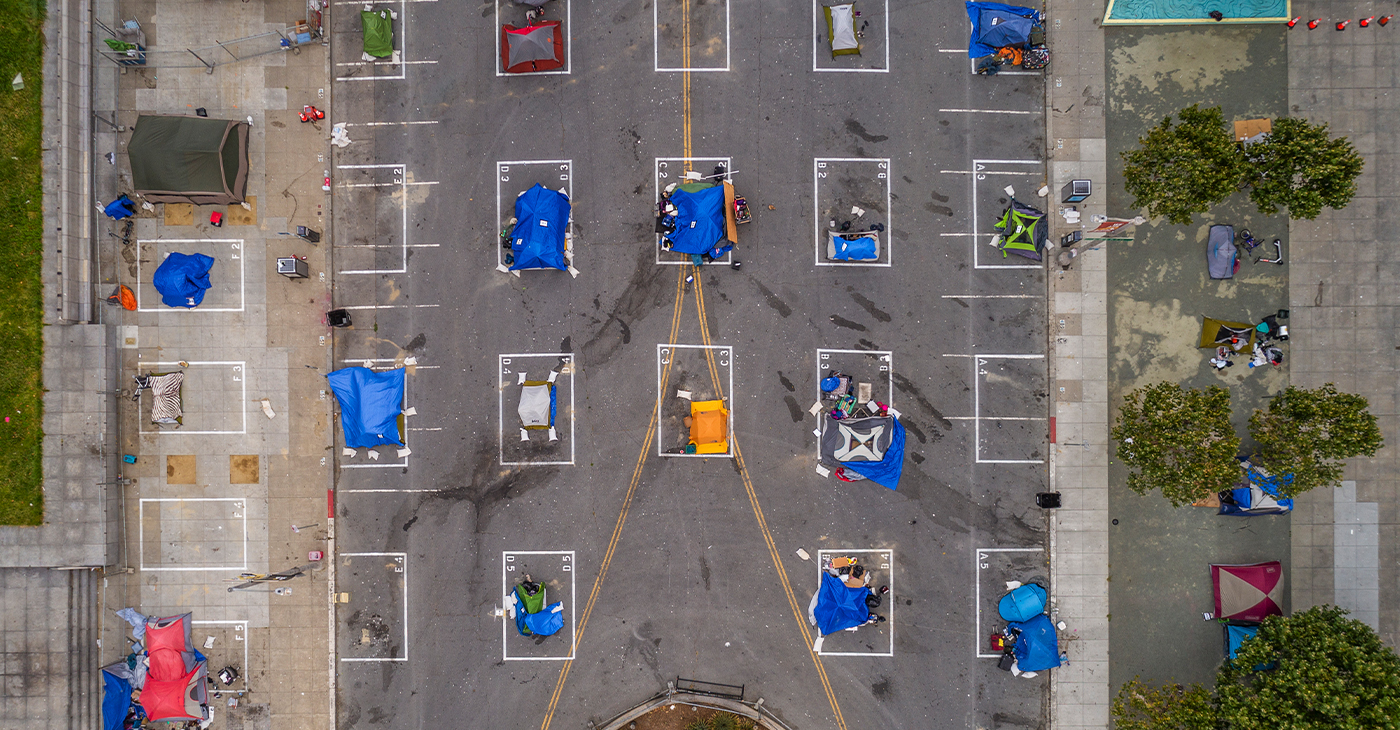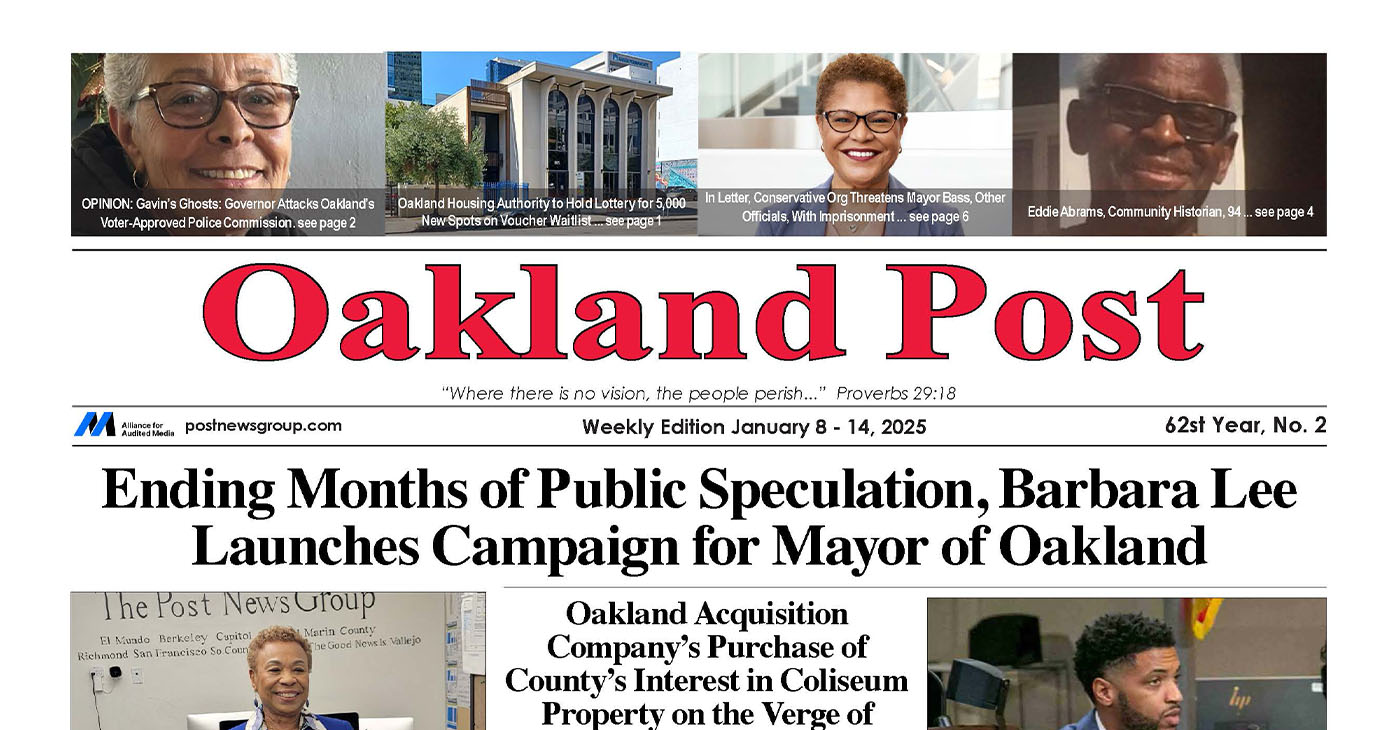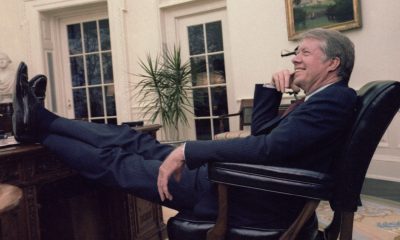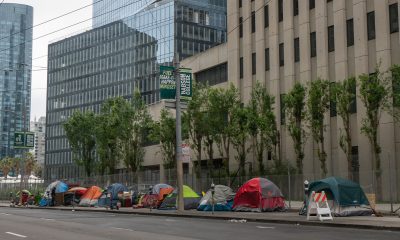Bay Area
Federal Judge Refuses to Suspend Injunction Against Encampment Sweeps
Citing a misguided legal maneuver by city attorneys, a federal magistrate judge late Monday denied a motion by the city of San Francisco to suspend a preliminary injunction that prevents the city from sweeping tent encampments in the city while there is a shortage of shelter beds.

By Joe Dworetzky
Bay City News
Citing a misguided legal maneuver by city attorneys, a federal magistrate judge late Monday denied a motion by the city of San Francisco to suspend a preliminary injunction that prevents the city from sweeping tent encampments in the city while there is a shortage of shelter beds.
In denying the request for a stay while the injunction is under appeal, U.S. Magistrate Judge Donna Ryu called out a legal gambit by city lawyers who, in their haste to appeal, disregarded her earlier advice about the proper procedure for raising their challenge to the injunction.
Ryu used the city’s legal strategy to support her conclusion that the city had little likelihood of success on its appeal of the preliminary injunction. She also found the city had not shown that it would be “irreparably injured” if the injunction remains in place.
The decision, and in particular her focus on the city’s legal maneuvering, seems likely to complicate the city’s chances of reversing the prohibition on sweeps in the near term.
The controversy is in a high-profile case brought against the city by the advocacy group Coalition on Homelessness and a number of individual plaintiffs, some of them unsheltered people living on city streets.
The plaintiffs argued that the Eighth Amendment’s prohibition against cruel and unusual punishments means that the city can’t punish a person for sleeping on city streets while there is a shortfall of available shelter beds.
Ryu agreed and on Dec. 23, 2022, she preliminarily enjoined the city from enforcing or threatening to enforce a variety of laws and ordinances that would “prohibit involuntarily homeless individuals from sitting, lying, or sleeping on public property.”
The order effectively barred the city from breaking up or sweeping tent encampments.
The judge based her ruling on the fact that the city’s shelter system was more than 4,000 beds short of being able to accommodate the full unsheltered portion of the city’s homeless population. Without shelter beds, she reasoned that the homeless had no place to sleep except the city’s streets. That meant that sweeping encampments was essentially punishing people for the involuntary status of being homeless.
When the preliminary injunction was issued, the city’s reaction was swift and sharp.
San Francisco Mayor London Breed said, “Mayors cannot run cities this way. We already have too few tools to deal with the mental illness we see on our streets. Now we are being told not to use another tool that helps bring people indoors and keeps our neighborhoods safe and clean for our residents.”
On Jan. 3, San Francisco City Attorney David Chiu issued an unusual press release that said “the Court’s order puts San Francisco in an impossible situation, practically and legally.”
The city’s outsized reaction came from its concern over the possible scope of Ryu’s order. Tent encampments are illegal in San Francisco under existing city law and can be broken up, but only if the city gives advance notice and offers the people shelter.
The city feared that the order would be read to prevent encampment sweeps until adequate shelter was available for every unsheltered person in the city. The city believed that it should only have to provide a shelter bed for the people displaced when an encampment was swept.
The difference between those interpretations was huge.
Under the city’s reading, it needed only to find a few dozen empty shelter beds on any given day so it could accommodate the people in the particular camp being swept. Under the other reading, it would have to build or acquire thousands of beds — enough for all the unsheltered — a process that would likely take years and hundreds of millions of dollars.
Apparently as a way to get that issue addressed quickly, on Jan. 3, city lawyers filed a so-called “administrative” motion to “clarify” the meaning of Ryu’s order.
Ryu was not pleased.
Despite the urgency of the city’s entreaty, at a hearing on Jan. 12, Ryu found that the city’s lawyers raised the issue improperly, trying to use a procedure for raising low-stakes administrative matters — like asking for permission to raise the page limits of a brief — to raise a clearly substantive issue.
At the hearing, Ryu admonished lawyers for the city (as well as lawyers for the plaintiffs who had followed the same procedure for one of their motions).
She told the lawyers for both sides “you know better” and warned them “not to get off on the wrong foot.”
She went on to make clear that if the city wanted to raise the issue, it should follow proper procedure for substantive motions.
The city did not take the judge up on her offer.
Instead, on Jan. 23, it filed an appeal of her preliminary injunction. A week later, on Feb. 2, it asked Ryu to stay her injunction while the appeal was pending.
In the briefing in support of the stay, city lawyers raised the same legal argument about the scope of the injunction that it had unsuccessfully tried to raise in its Jan. 3 motion to clarify.
That approach clearly bothered Ryu. In Monday’s ruling denying the stay, she emphasized that even though she had invited the city to raise the issue properly, the city had declined to do so. In her view, that approach deprived the court of an opportunity to consider the city’s argument in the context of a proper factual record.
She also found that the city had not met its burden of showing that it would suffer irreparable harm if the injunction stayed in place. For example, she pointed out that the order allows the city to require an encampment to move for the time it takes the city to clean the area. She also said the city could continue to offer those in an encampment social services and shelter options.
The finding that the city lawyers failed to follow the appropriate procedure puts the city in a difficult position.
While the city may ask the U.S. Court of Appeals for the Ninth Circuit to stay the injunction, the appeals court would not only need to take the relatively unusual step of intervening before reaching the merits of the appeal, but do so where there the city arguably didn’t take the proper steps to bring the issue before the court that issued the challenged injunction.
If the appeals court does not intervene, the sweep injunction will likely remain in place until a full trial in the case before Ryu. That trial is currently scheduled for April 3, 2024.
Jen Kwart, a spokesperson for City Attorney David Chiu, stated, “We continue to believe Judge Ryu’s order puts the City in an untenable situation, reaches beyond legal precedent, and exacerbates our homelessness crisis. We look forward to presenting our case on appeal to the Ninth Circuit.”
Hadley Rood, one of the plaintiffs’ lawyers, said “The Preliminary Injunction order is narrowly tailored and only prevents the City from brutally punishing unhoused people purely because they are homeless.”
Issues involving the city’s handling of homelessness have escalated in recent months. The city’s Board of Supervisors held a hearing on March 21 to consider a plan prepared by the city’s Department of Homelessness and Supportive Housing that was supposed to lay out how to shelter all unsheltered people in the city.
The department declined to do so, concluding that even if it had $1.45 billion and three years to implement, it couldn’t accomplish the requested result because of the difficulty in acquiring sites in the city and building adequate capacity.
The department’s stated inability to provide enough shelter combined with the city attorney’s difficulties in getting a stay seem likely to exacerbate the problems the mayor and board face leading the city in its recovery from the pandemic.
Copyright © 2023 Bay City News, Inc. All rights reserved. Republication, rebroadcast or redistribution without the express written consent of Bay City News, Inc. is prohibited. Bay City News is a 24/7 news service covering the greater Bay Area.
Activism
Oakland Post: Week of January 8 – 14, 2025
The printed Weekly Edition of the Oakland Post: Week of January 8 – 14, 2025

To enlarge your view of this issue, use the slider, magnifying glass icon or full page icon in the lower right corner of the browser window.
Activism
Barbara Lee Launches Campaign for Mayor of Oakland
“At this critical moment, we must not be a city divided, but a community united,” she Lee. “If elected I will bring my hands-on leadership, new ideas and decades of experience in identifying billions in resources for our great city, so all residents and businesses are stronger and safer and our community has optimism and confidence in Oakland’s future.”

By Post Staff
Barbara Lee on Wednesday morning formally announced her candidacy for Mayor in Oakland’s April 15 special election.
“Time and time again, Oaklanders have faced our toughest obstacles by uniting to meet our challenges,” said Lee.
“At this critical moment, we must not be a city divided but a community united,” she said. “If elected, I will bring my hands-on leadership, new ideas, and decades of experience in identifying billions in resources for our great city so all residents and businesses are stronger and safer and our community has optimism and confidence in Oakland’s future.”
“As Mayor, I’ll address our homelessness crisis, prioritize comprehensive public safety and mental health services, and lead with fiscal responsibility to deliver the core City services residents and business owners deserve. Let’s do this – together.”
“I’ve never shied away from a challenge,” said Lee. “I’m always ready to fight for Oakland.”
Watch her campaign video here, which is online at BarbaraLee4Oakland.com
Activism
Who Wants to Be the Next Elected Mayor of Oakland?
The Oakland Post is issuing a CALL to all candidates to present their answers, plans, or solutions in response to our list of questions.

By Paul Cobb
Many of you probably recall the oft-repeated expression when describing leadership that “many are called but few are chosen.” We will be inundated during January with many claims of qualifications by those who want to lead Oakland.
As of Jan. 1, 2025, we have heard the names of 14 potential candidates who might become Oakland’s next Mayor.
The Oakland Post is issuing a CALL to all candidates to present their answers, plans, or solutions in response to our list of questions.
Any candidate who wishes to receive a free announcement, publicity or space in the paper must submit solutions.
- The first questions we propose are 1) What is your budget balancing plan?
- What is your position on requiring all city employees to work full-time in their designated offices rather than remotely from their homes?
- What is your plan to provide open-access opportunities to all police officers for overtime pay?
- Since many businesses, especially downtown, have closed, what is your plan to attract and increase revenues?
Please send your submissions of 300 words or less to each question to Social@postnewsgroup.com or visit www.postnewsgroup.com
-

 Activism3 weeks ago
Activism3 weeks agoBooks for Ghana
-

 Arts and Culture4 weeks ago
Arts and Culture4 weeks agoPromise Marks Performs Songs of Etta James in One-Woman Show, “A Sunday Kind of Love” at the Black Repertory Theater in Berkeley
-

 Bay Area3 weeks ago
Bay Area3 weeks agoGlydways Breaking Ground on 14-Acre Demonstration Facility at Hilltop Mall
-

 Activism4 weeks ago
Activism4 weeks ago‘Donald Trump Is Not a God:’ Rep. Bennie Thompson Blasts Trump’s Call to Jail Him
-

 Activism3 weeks ago
Activism3 weeks agoLiving His Legacy: The Late Oscar Wright’s “Village” Vows to Inherit Activist’s Commitment to Education
-

 Arts and Culture3 weeks ago
Arts and Culture3 weeks agoIn ‘Affrilachia: Testimonies,’ Puts Blacks in Appalacia on the Map
-

 Alameda County3 weeks ago
Alameda County3 weeks agoAC Transit Holiday Bus Offering Free Rides Since 1963
-

 #NNPA BlackPress4 weeks ago
#NNPA BlackPress4 weeks agoCalifornia, Districts Try to Recruit and Retain Black Teachers; Advocates Say More Should Be Done


















































